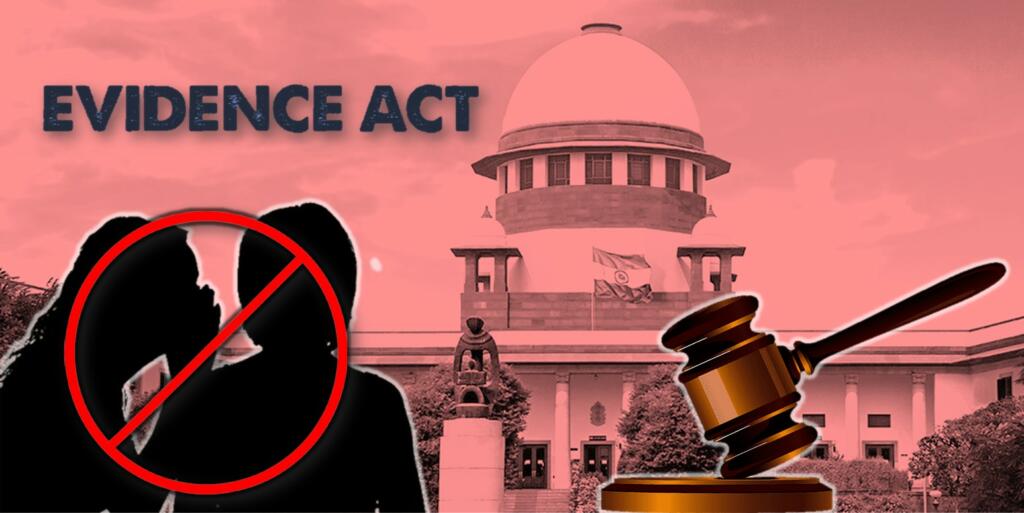In a legal context, the phrase “hearsay” which consists of the terms “hear” and “say,” refers to both what is said and done, as well as what is written. It describes the type of evidence that is not exclusively based on the credibility of the witness but also, to some extent, on the competency and veracity of another person.
The term ‘Hearsay’ has various connotations. It can be indicative of a testimony that is not based on direct personal communication but rather what a witness may have overheard others say during an informal discussion or other source of outside evidence. It is viewed as almost synonymous with irrelevant in comparison to direct witness testimony.
That is to say, third-person actions and statements are typically irrelevant, making them impossible to prove. Every action or statement that has any bearing on a matter must be supported by evidence from an eyewitness and an ear witness.
Evidently, in the historic case of Kalyan Kumar Gogoi v. Ashutosh Agnihotri and Anr (2011), the Supreme Court of India reportedly underlined the reason why hearsay evidence is not regarded as relevant under the Indian Evidence Act, 1872.
Factual Backdrop of the Case
The instant case arose out of an appeal, filed under Section 116A of the Representation of People Act, 1951 pertaining to an election dispute. However, the prominent question of law put before the court was whether the hearsay rule of appreciation of evidence would be or not be applicable to the determination of material fact, for the purpose of admissibility under RPA, 1951.
Observation of the Apex Court
The Bench comprised of Justice Panchal and Justice Gyan Sudha Misra held that the argument that the rule of appreciation of hearsay evidence would not apply to determination of the question whether change of venue of polling station has materially affected the result of the election of the returned candidate, cannot be accepted for a simple reason.
This question has to be determined in a properly constituted election petition to be tried by a High Court in view of the provisions contained in Part VI of the Representation of the People Act, 1951 and Section 87(2) of the Act of 1951, which specifically provides that the provisions of the Indian Evidence Act, 1872, shall subject to the provisions of the RPA, be deemed to apply in all respects to the trial of an election petition.
The Court further opined that the learned counsel for the appellant could not point out any provision of the Act of 1951, which excludes the application of rule of appreciation of hearsay evidence to the determination of question posed for consideration of this Court in the instant appeal. Consequently, imposing the duty on the Bench to deal with the rule of appreciation of hearsay evidence.
Rule of appreciation of hearsay evidence
The Apex Court pointed out that ‘hearsay evidence’ is excluded on the ground that it is always desirable, in the interest of justice, to get the person, whose statement is relied upon, into court for his examination in the regular way, in order that many possible sources of inaccuracy and untrustworthiness can be brought to light and exposed, if they exist, by the test of cross examination.
Further, the phrase “hearsay evidence” is not used in the Evidence Act because it is inaccurate and vague. It is a fundamental rule of evidence under the Indian Law that hearsay evidence is inadmissible. Thus, a statement, oral or written, made otherwise than a witness in giving evidence and a statement contained or recorded in any book, document or record whatever, proof of which is not admitted on other grounds, are deemed to be irrelevant for the purpose of proving the truth of the matter stated.
Consequently, an assertion other than one made by a person while giving oral evidence in the proceedings is inadmissible as evidence of any fact asserted. That this species of evidence cannot be tested by cross-examination and that, in many cases, it supposes some better testimony which ought to be offered in a particular case, are not the sole grounds for its exclusion.
Therefore, its tendency to protract legal investigations to an embarrassing and dangerous length, its intrinsic weakness, its incompetency to satisfy the mind of a Judge about the existence of a fact, and the fraud which may be practiced with impunity, under its cover, combine to support the rule that hearsay evidence is inadmissible.
Rationale behind not taking Hearsay as evidence
The rule of hearsay conforms to the evidential inferences, however, the reasons why hearsay evidence is not received as relevant evidence has been provided by the Apex Court in the Kalyan Kumar Gogoi verdict as follows:
- Firstly, the person giving hearsay evidence does take any responsibility. The law requires all evidence to be given under personal responsibility, that is, every witness must give his testimony, under such circumstances, as to expose him to all the penalties of falsehood. If the person giving hearsay evidence is cornered, he has a line of escape by saying “I do not know, but so and so told me”,
- Secondly, truth is diluted and diminished with each repetition, and
- Finally, if permitted, gives ample scope for playing fraud by saying “someone else told me that”. It would be attaching importance to false rumors flying from one foul lip to another.
That is to say, the law requires every piece of evidence to be given under personal responsibility as iterated by the Apex Court in the case of State of Haryana v. Rattan Singh whereby it was held that, “there is no allergy to hearsay evidence in such enquiry provided it has reasonable nexus and credibility”. Conclusively, the statements of witnesses based on information received from others are inadmissible.
Support TFI:
Support us to strengthen the ‘Right’ ideology of cultural nationalism by purchasing the best quality garments from TFI-STORE.COM
Also Watch:
https://www.youtube.com/watch?v=XrjqoOHSy9U
